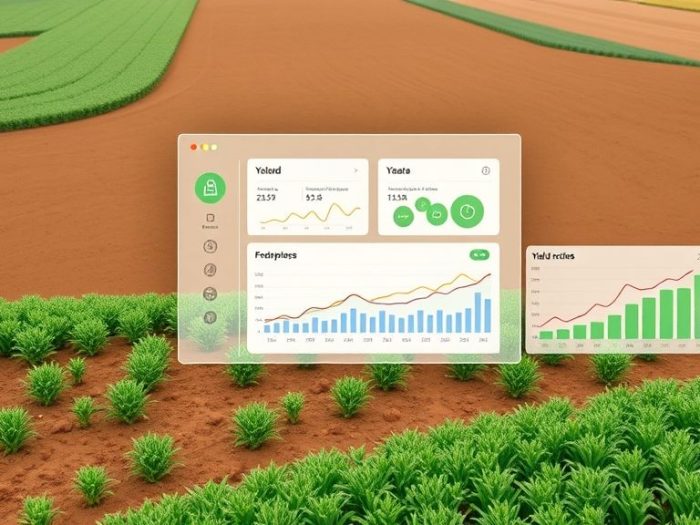Farmland has emerged as an attractive alternative investment, offering potential for stable
returns and diversification. Farmland investing platforms provide access to this asset class,
but their offerings vary. This article compares several farmland investing platforms, focusing
on returns and minimum investment requirements.
Understanding Farmland Investing
Farmland investing involves acquiring ownership or partial ownership of agricultural land.
Returns are generated through:
- Rental Income: Leasing the land to farmers.
- Appreciation: The increase in land value over time.
Benefits of Farmland Investing
- Low Volatility: Farmland returns tend to be less correlated with the stock market.
- Inflation Hedge: Farmland values and rental income can increase with inflation.
- Stable Income: Rental income provides a consistent cash flow.
- Long-Term Appreciation: Farmland has historically appreciated in value over the long term.
Farmland Investing Platforms
Farmland investing platforms offer various ways to invest:
1. AcreTrader
AcreTrader connects investors with farmland investment opportunities.
- Investment Structure: Fractional ownership of individual farms.
- Returns: Varies depending on the farm and lease agreement.
- Minimum Investment: Typically $15,000 or more.
-
Key Features:
- Due diligence on farms.
- Professional farm management.
2. FarmTogether
FarmTogether offers fractional ownership of farmland and other agricultural assets.
- Investment Structure: Fractional ownership of various farm types.
- Returns: Projected cash yields and potential appreciation.
- Minimum Investment: Typically $10,000 or more.
-
Key Features:
- Focus on sustainable agriculture.
- Diverse investment offerings.
3. Farmland Partners Inc. (FPI)
Farmland Partners Inc. is a publicly traded REIT that owns and manages farmland.
- Investment Structure: Publicly traded stock (REIT).
- Returns: Dividend income and stock price appreciation.
- Minimum Investment: Varies based on stock price.
-
Key Features:
- Publicly traded, offering liquidity.
- Diversified portfolio of farmland.
4. (Add more platforms here. Research and add specific data and detailed descriptions for each platform.)
- Different farm types (row crops, permanent crops).
- Various investment structures.
- Different geographic locations.
Comparing Returns and Minimum Investments
It’s difficult to provide exact return figures, as they vary based on:
- Farm type
- Location
- Lease terms
- Market conditions
However, here’s a general comparison:
| Platform/Structure | Typical Return Range | Minimum Investment |
|---|---|---|
| Fractional Ownership Platforms (AcreTrader, FarmTogether) | 5-15% annually (combination of cash yield and appreciation) | $10,000 – $20,000+ |
| Farmland REIT (FPI) | Varies based on stock market performance and dividend yield | Varies (stock price) |
| (Add more platforms here) | (Add return range) | (Add minimum investment) |
Important Considerations
- Due Diligence: Thoroughly research each platform and investment opportunity.
- Investment Horizon: Farmland is generally a long-term investment.
- Fees: Understand the fees charged by the platform.
- Accreditation: Some platforms may require you to be an accredited investor.
- Liquidity: Fractional ownership platforms may have limited liquidity compared to publicly traded REITs.
Conclusion
Farmland investing platforms offer diverse ways to access this asset class. Fractional ownership
platforms provide direct exposure to individual farms, while REITs offer liquidity through
publicly traded shares. Carefully consider your investment goals, risk tolerance, and the
platform’s features before investing.
Related Keywords
Farmland investing platforms, farmland investment, agricultural land investment, AcreTrader,
FarmTogether, Farmland Partners Inc., real estate investing, alternative investments,
crowdfunded farmland, farmland REITs, agricultural real estate.
Frequently Asked Questions (FAQ)
1. What is farmland investing?
Farmland investing involves acquiring ownership or partial ownership of
agricultural land.
2. How do investors generate returns from farmland?
Returns are generated through rental income (leasing the land to farmers) and
appreciation (increase in land value).
3. What are the benefits of farmland investing?
Benefits include low volatility, inflation hedge, stable income, and long-term
appreciation.
4. What are farmland investing platforms?
Farmland investing platforms are online platforms that facilitate investing in
farmland.
5. What is AcreTrader?
AcreTrader is a platform that offers fractional ownership of individual farms.
6. What is FarmTogether?
FarmTogether is a platform that offers fractional ownership of farmland and
other agricultural assets.
7. What is Farmland Partners Inc. (FPI)?
Farmland Partners Inc. (FPI) is a publicly traded REIT that owns and manages
farmland.
8. How do returns vary between farmland investing platforms?
Returns vary based on factors like farm type, location, lease terms, and market
conditions.
9. Is farmland a liquid investment?
Fractional ownership platforms may have limited liquidity compared to publicly
traded REITs.
10. What are some important considerations before investing in farmland?
Important considerations include due diligence, investment horizon, fees, and
accreditation requirements.



